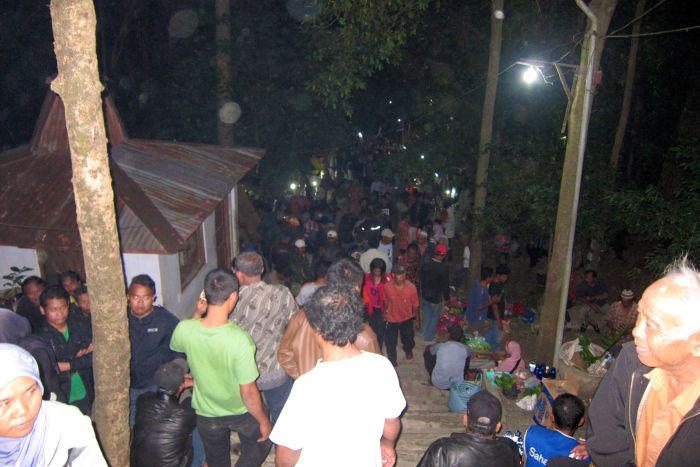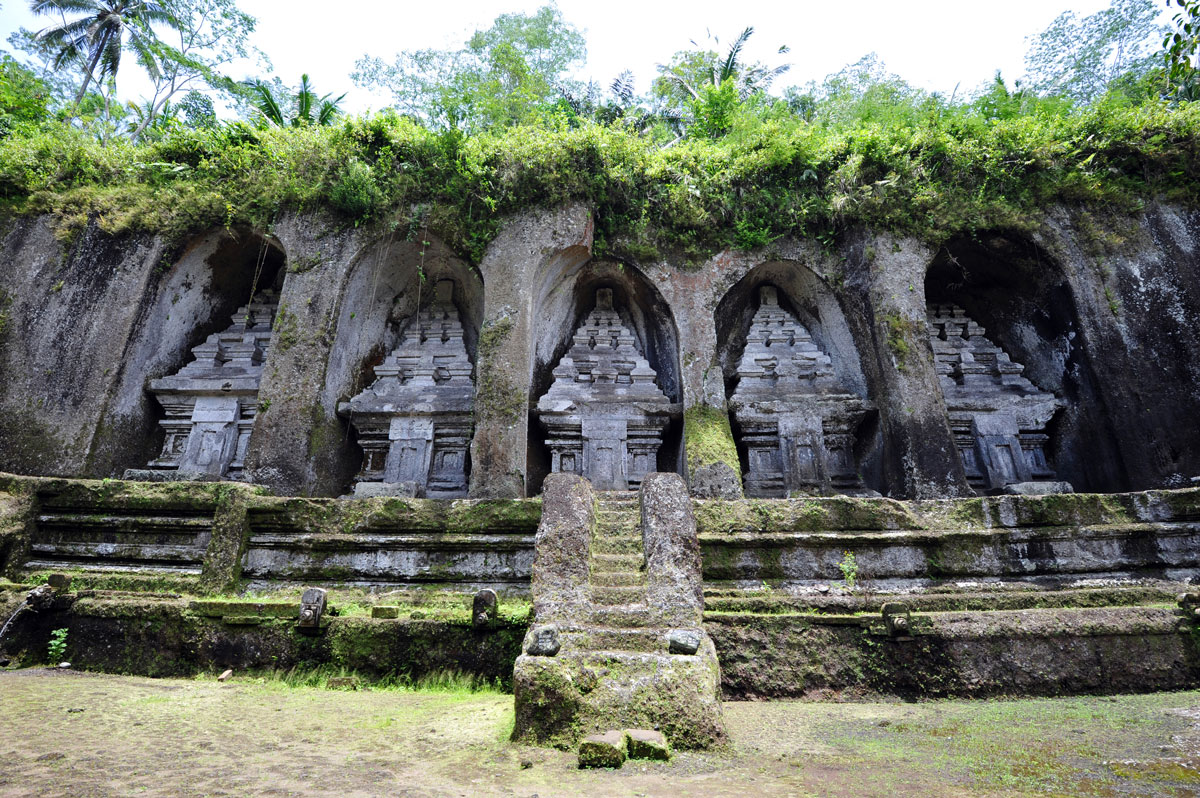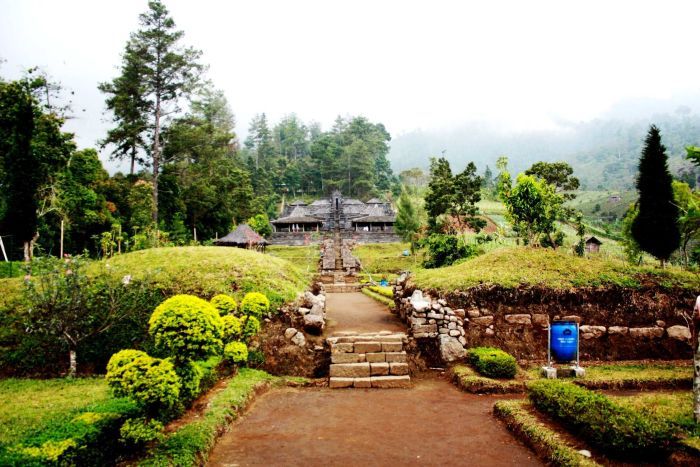Embarrassed By Its 5 Centuries Of Sex-Pilgrimage Tradition, Indonesia Bans 'Sex Mountain'
It's embarrassing for the country with the world's largest Muslim population, so the regional governor has banned the practice out of concern for Indonesia's international reputation.
Gunung Kemukus in the Sragen Regency of Central Java, Indonesia, is a hill known to locals by the colourful name of Sex Mountain - a moniker that comes from it being the site of an ancient ritual involving extramarital sex between strangers
People from across Indonesia flock to honour a local saint and every 35 days rituals are conducted that involve adulterous sex
The practice stems from an old story about a prince who was discovered having an affair with his stepmother; the couple was supposedly chased down and finally killed while they were in the middle of an ill-advised fugitive sex act, then buried on the mountain.
Since then it's believed whoever can finish their lovemaking is afforded a life of abundance, and people have been traveling here to have sacred sex since the 16th century.
ABC's Rebecca Henschke explains the adulterous ritual:
The ritual involves first prayers and offerings of flowers at the grave of Pangeran Samodro and Nyai Ontrowulan. Pilgrims must then wash themselves at one of the sacred springs on the hill and find a stranger and have sex with them.
'The ritual at Gunung Kemukus is people have sex with someone who is not their husband or wife, it has to be a stranger, someone they have never met before,' says Koentjoro Soeparno, professor of sociology at the University of Gajah Mada.
'They need to do it on Jumat Pon and they need to do it seven times. That's every 35 days, so it's a relationship that lasts around a year. So the couples have to make a significant commitment to each other.'
'They need to exchange mobile phone numbers and addresses and decide where to meet again, so they can complete the ritual. Most people who do the ritual are small business owners. They hope that if they carry out the ritual their business will improve and they will make good money and be successful.'
Traditionally pilgrims did their business in the open, but the area is currently furnished with shabby huts, vendors selling food and aphrodisiacs, and brothels, reports VICE
The site has always attracted sex workers, but this year's crackdown on Surabaya's Dolly neighbourhood - known for decades as the region's largest red-light district - has led to more prostitutes than ever making the mountain home.
This all seem at odds with Indonesia's modern Islamic core, and it hasn't escaped the Western media's attention.
"It's such a paradox, and it's hard to make sense out of," Patrick Abboud from Australia's Special Broadcasting Service (SBS) said in an interview about his recent documentary on the mountain. "It's a strange snapshot of an Islamic ritual which really asks how it's possible to exist, given they are devout Muslims."
But after attracting unwanted attention from international media, a sex trade scandal, and some scolding from the local governor, the ritual has come to a screeching halt
In November 2014 the governor of the province of Central Java, Ganjar Pranowo, reacted to a film by an Australian journalist, which had been broadcast by SBS One, that portrayed Mount Kumukus as 'Sex Mountain' and scandalized the local ritual practices.
He issued a ban on the tradition of engaging in sex at site; he said that the local practice was hazardous in terms of health - indeed, sexually transmitted diseases in the area are on the rise- and morality, and that it was shameful that the matter had attracted the attention of the outside world.
In a statement to Indonesian media, governor Pranowo said, "The outside world knows about this. Isn't it a shame?"
Governor Pranowo is not alone in wanting to end the tradition. The Indonesian Ulema Council (MUI), the country's primary Muslim clerical body, also believes the practice is immoral. PakCholil Nafis, secretary of the Commission for Assessment and Research at MUI, expressed his fear that the rite would lead people down a sinful path. "The government needs to protect its people," he said. "I hope the government shuts this place down."
Meanwhile, others, who would like it to continue, say that the tradition is not just a veiled excuse to sleep with strangers - it's part of a culture that is vanishing from Indonesia
"The ritual of having sex for the promise of good fortune in Java is more complex than being a practice that operates on a contradictory belief to Islam," Professor Pak Wawan Gunawan, a lecturer at Indonesia's National Islamic University and coordinator of Indonesia's Interfaith Network, told VICE.
The Sex Mountain ritual is part of a religious system that combined the country's many religions into a unified whole that included a belief that spiritual forces existed in everything, from the natural world and architecture to the Goddess of the Southern Ocean. "We had a symmetry between Sufism and Islam, and the Majapahit Empire's Buddhist and Hindu influences," said Gunawan. "That symmetry was the religion of Java, our people, our land."
But not every official in modern-day Java wants to take the sex out of Sex Mountain
Many who live in the area are not offended by the ancient practice as much as the modern ramifications of it. Sragen Regent Agus Fatchur Rahman, for instance, has said he does not want to close the site, just stop the sex trade there.
"The bigger problem is that the Governor of Surabaya banned Dolly from operating," said Gunawan. "Prostitutes have flocked to Gunung Kemukus so they can continue their work - the real issue in Sragen Regency has nothing to do with religion," said Gunawan. "The real issue is social."



